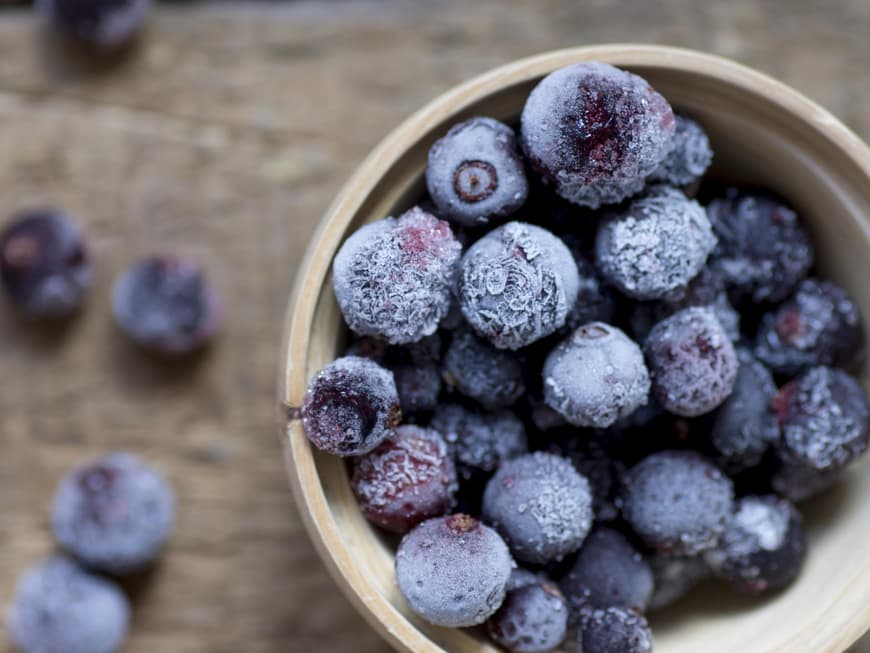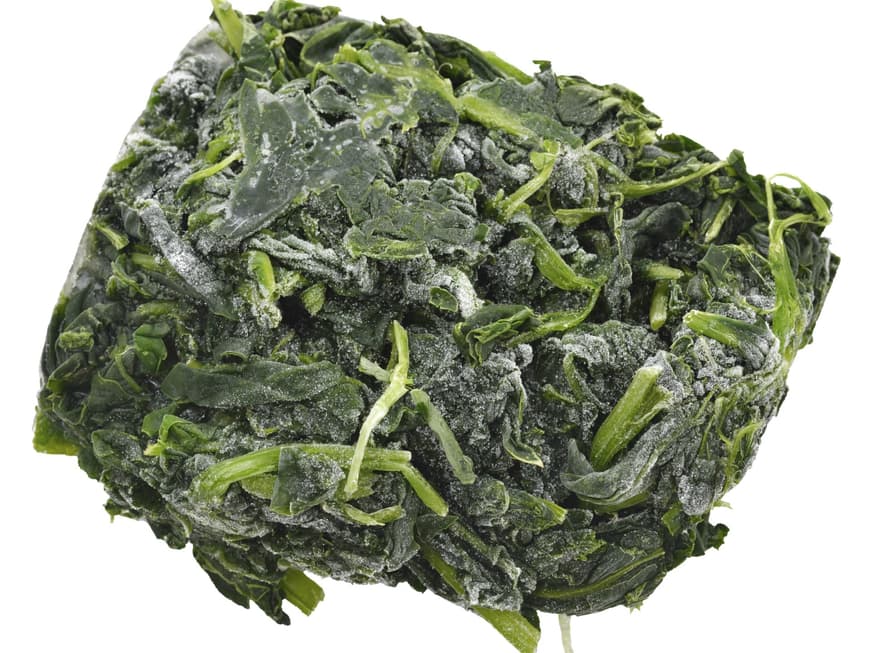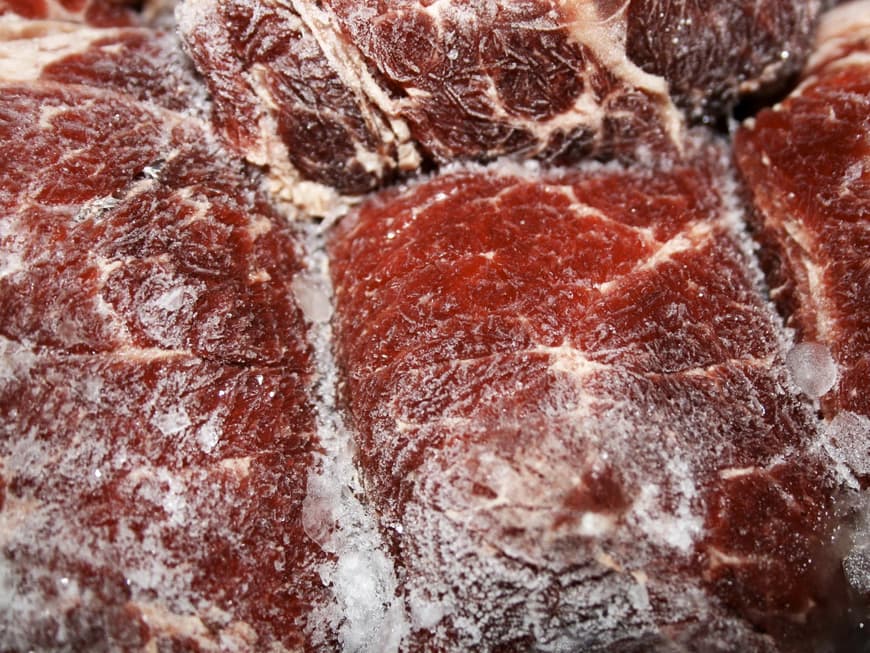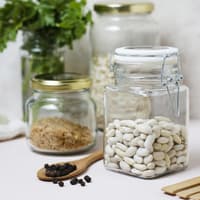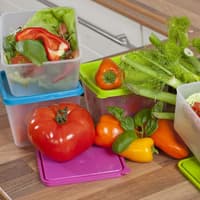Freezing food: Which container is the best?
Freezing food sounds easy, but there is a lot to consider. Whether it's a freezer bag, Tupperware or glass container - the main thing is that the container seals well. Otherwise freezing water can penetrate and bacteria can multiply wonderfully when defrosting. With plastic containers, make sure that they are also suitable for the freezer.
Particular care should be taken not to fill jars too full. This is because the frozen food expands over time - and can cause the jar to burst.
How long does the food keep?
If you are freezing meat, please note: raw minced meat, poultry and raw fish will keep in the freezer for approx. 3 months. Raw beef and pork will keep for 6 months. Baked goods up to 6 months and vegetables 6 to 12 months. Food should not be frozen for longer than a year.
How do I freeze fish and meat?
Freezing fish and meat is theoretically safe. It's more about freezing them correctly: Remove directly from the packaging, pat dry and seal airtight in freezer bags. A vacuum sealer is a great help when freezing food - it makes it extra airtight. To prevent pieces of meat from sticking together, first place the fresh meat next to each other on a board, wrap everything in cling film and place in the freezer for two hours. The pieces are now frozen hard and you can repack them in freezer bags. Incidentally, the same trick also works great with berries. Caution: once defrosted, do not refreeze raw meat.
Can I put eggs in the freezer?
Yes, but not whole - the shell would crack. Beat them, whisk them and put them in freezer bags.
Which foods should I avoid freezing?
If you freeze vegetables, they should preferably not contain water, such as raw tomatoes, cucumbers or radishes. The same applies to watery fruit. This is because they become mushy when defrosted and lose their flavor.
How can I preserve the vitamins?
Vegetables should always be blanched before freezing, as this reduces their enzyme activity. This means that neither color, taste nor vitamins are lost.
You may also be interested in this:

